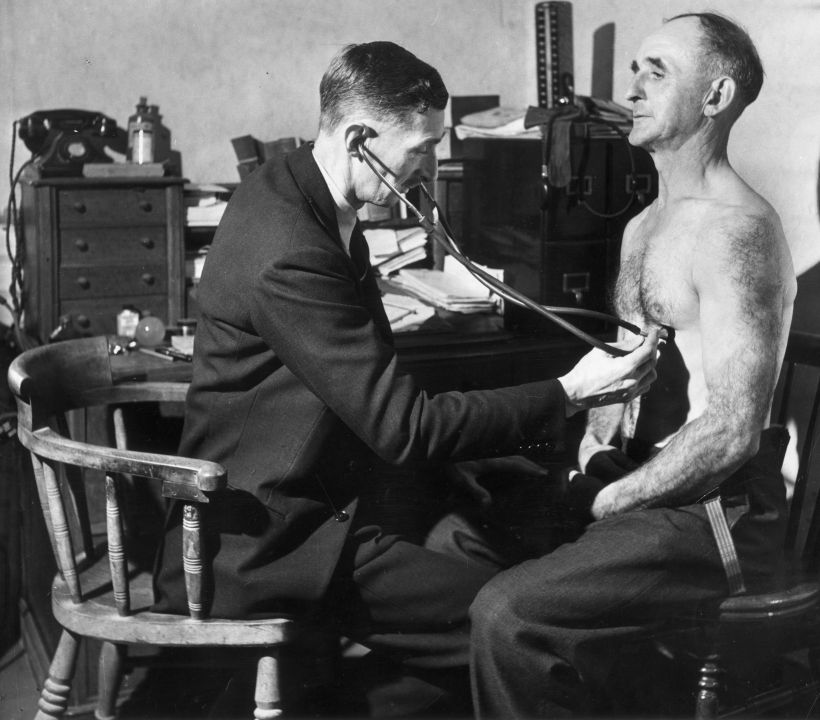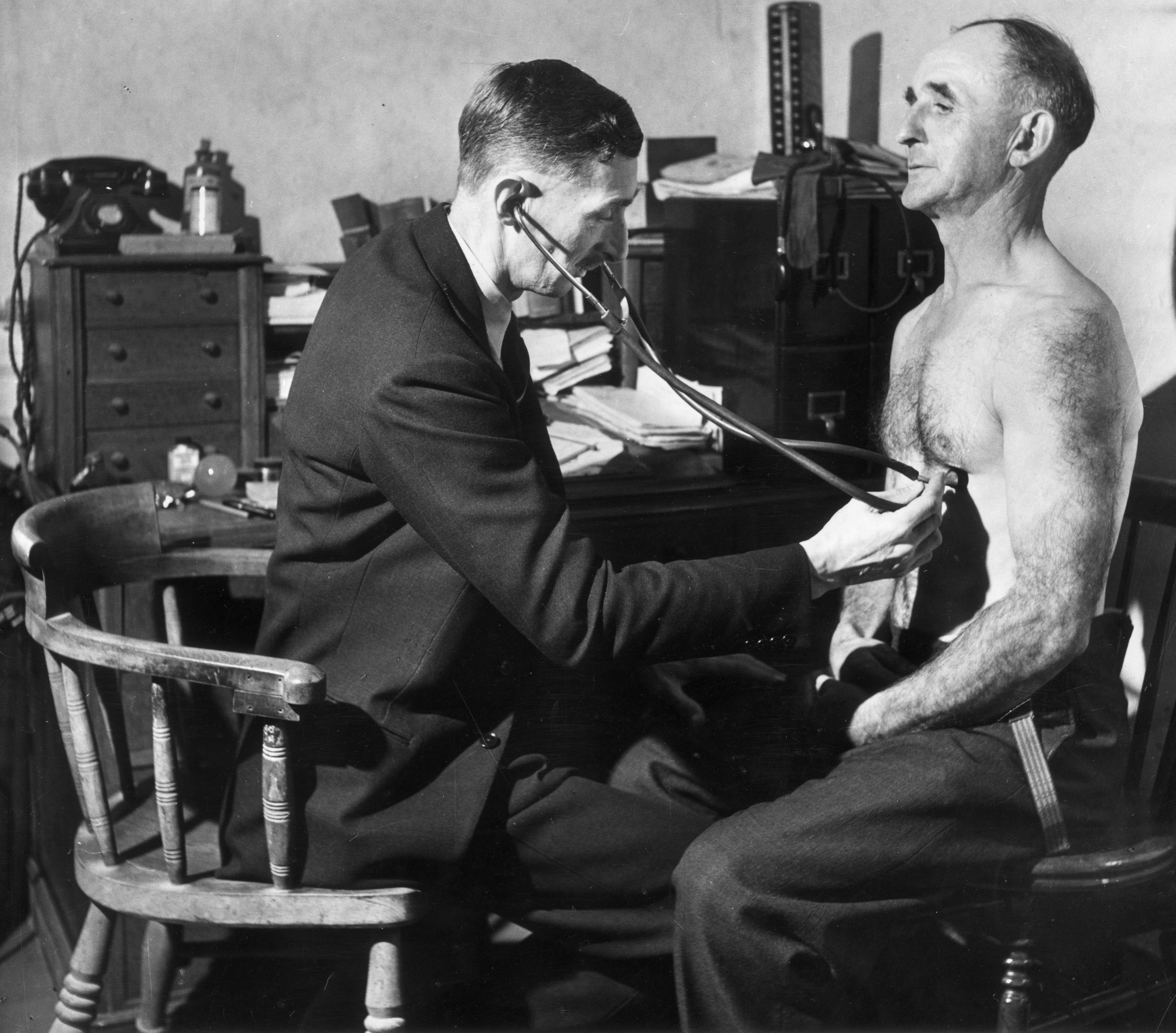[audioplayer src=”http://traffic.libsyn.com/spectator/TheViewFrom22_15082013.m4a” title=”Andrew Haldenby and Sean Worth join Sebastian Payne to discuss NHS reforms.”]
Listen
[/audioplayer]
GPs enjoy the salary of bankers, regularly pulling in £100,000 for a five-day week, with no on-call or weekend duties and a lovely taxpayer-funded holiday every year. I know this because it says so in the papers, so it must be true.
Stories of GP largesse are far from accurate, and bear testament only to the media’s desire for sensationalism. GPs are the true medical heroes of the NHS, the soldiers in the trenches, too loyal to the metaphorical army to revolt, protest or express opinions, lest such opinions serve as an indirect abrogation of their oath to heal and comfort the sick. It is unfortunately deeply ingrained in the DNA of those doctors who serve the NHS that they must be ‘professional’ at all times and at all costs, and that to defend themselves publicly is akin to both blasphemy and unprofessionalism.
I on the other hand, a humble gynaecologist working elsewhere, do not have these reservations, and if my colleagues are not able to defend themselves publicly – lest they impact patient confidence, give succour to those who want to privatise the NHS or in any way jeopardise their own positions – I will happily go to the crease to bat on their behalf.
Next time you wait for an appointment for three weeks to see your overpaid GP, having been irritated by the obnoxious secretary and then made to wait an hour to be seen, remember this:
The greedy bastard in front of you slogged through five or six hard years of medical school and graduated with debts exceeding £100,000.
The perfidious little fiend then undertook five years or additional training during which he was often expected to work hours in excess of the Working Time Directive, without overtime pay, with his own training often a secondary consideration to the ‘service’. Arduous examinations followed, and then being shunted from hospital to hospital, sometimes at different ends of the country.
Upon completing his training, the oaf went to work for a practice, where he realised that whilst he served the NHS, he did not work for the NHS. His financial situation was predicated on his ability to help run what is essentially a small business, something for which he received no training. It is not the NHS that pays doctors, secretaries, nurses and other essential staff at the practice, nor the building mortgage or rent. Rather, it is the GPs themselves who pay all this, from the budgets they receive that include their supposedly massive salaries.
Your spoiled GP, that malignant little toad, then became familiar with how the government spends in pennies, but demands the results in pounds. GP surgeries are given roughly £65 per patient per year, which is supposed to cover unlimited visits. In other fee-for-service systems, GPs are paid per patient per visit.
In order to receive additional funding, GP practises must indulge in activities on top of clinical work, for example ‘Patient Participation Groups‘; initially funded, these are subsequently incorporated into ‘core’ services when funding is withdrawn, creating more work for the same budget.
The government constantly unveils new targets, in the absence of increased funding. GPs are told to refer more patients to increase cancer diagnoses, but are castigated if their referrals are subsequently deemed ‘unnecessary’ by hospital specialists – and vilified when a cancer is missed. With more complex diseases being treated in the community, more GPs are needed with specialist expertise, as are nurses and other staff. The additional funding for these positions is not forthcoming and hence mistakes will multiply,
GPs have no control over hospital appointments, and yet are blamed for any delays. Their working days start at 8 am, and do not finish until 12 hours later. The shysters also spend time daily, between noon and 4 pm, in unavoidable meetings pertinent to the running of the practice, clinical commissioning, Health and Safety, training and revalidation, and guideline and protocol development. They then go home to families they cannot spend more quality time with, who in turn begin to resent their occupation.
A lack of funding and facilities, along with increasing workload, blame for system inadequacies they can not address and constantly negative press, among to the lot of the modern UK GP. They are the glue that holds primary care together and provide services for the most vulnerable in the face of extreme adversity.
What a fun life is led by your lazy, overpaid, underworked GP who doesn’t want to get out of bed at night to attend to you! Patients would do well to remember that, next time the papers have a go at this not-so-comfortable crowd.







Comments